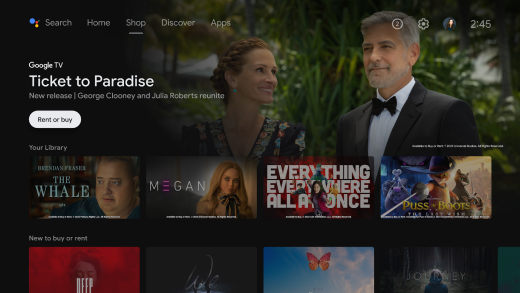Stories have a beginning and an ending, and even when stories aren’t told in this exact order, it is usually understood that readers must progress through a book from cover to cover. And yet, you will find them sometimes: people who always crack open a book at the back cover, take a sneak peek at the last paragraph, and then pick it up again from the beginning.
The reasons they offer for doing this are various: “I get anxious reading, so this calms me down”; “I am a rebel, so I like to do things in unconventional ways”; and even, “I do it in case I die before I manage to finish the book, so I don’t run the risk of missing the end.”
If I hadn’t heard about it from others, it would have never occurred to me to start a book at the end, because who wants spoilers? But then I wondered: if some people keep doing this, there must be something to it, surely? What if — hear me out — what if I started doing it, too?
So for a month, I decided to go against my own reading beliefs and systems, and start every book by reading the end.
Why People Do This
With this experiment, I also wanted to better understand why people do it, and what leads them to rebel against the supposedly right way to read a book.
I get the anxiety arguments, but apart from knowing about things that may trigger you, isn’t the thrill of a book — and why we pick them as entertainment — the expectation of something unexpected?
I got different responses.
Someone shared with me that they started reading the end of books to get out of a reading slump: “I started reading the last paragraph or last page after I got into a reading slump that I couldn’t seem to shake off. I read the last bit of text in the hopes of wanting to get back into the swing of reading. And it does work if the last page ends with a sort of abstract but reflective writing.”
Another person has explained they do that but with specific books, for example, romances: “If I’m wary of a book’s presentation as a romance, I read to make sure there’s a HEA [happy ever after].”
To some, it is almost like a ritual: they did it once, it became the default, and now it feels wrong to commence a book any other way.
How I Did It
When I say I started my books by the end, I mean I started by reading the last paragraph or two, never more than that. And I can tell you straight up: even reading this little, I was afraid.
One of my favourite things to do is buy a book based on its blurb, put it on my shelf, and pick it up many months later when I no longer remember what the book is about or why I bought it.
You may say that this is just me being bad at keeping a TBR, or that I buy so many books that I don’t have time to pick them up timely, but I will argue that this is a legit system I have in place.
Truthfully, I do buy more than I can read, but this system serves me just right, because I truly enjoy going into books with no idea whatsoever what they are about. Spoilers won’t stop me from reading something, but I do love to be caught by surprise. The bigger the plot twist, the better. So deciding to take this step of reading the end first was not done lightly.
I picked up books at random; as a mood reader, there was no point creating a pile with specific books, and I also didn’t want to rig the experiment. Among the books I picked up (which I will leave untitled), were contemporary fiction, literary fiction, historical fiction, sci-fi, fantasy, and a short story collection. Curiously, especially considering I barely read SFF, the list was quite diverse in genres this month.
Each time I opened a book and checked the end before the beginning, my heart skipped a bit. But I am nothing if not committed.
How It Went
At the end of this experiment, I can share that starting from the end wasn’t as terrible as I expected: the last paragraphs haven’t revealed anything crucial about the books. Even when my thoughts went to “maybe this is something I’d rather not have read”, I’d be lying if I said I got spoiled for the story, because I wasn’t.
In fact, I went as far as grabbing books I had already read that contain large (and unexpected) plot twists, and came to the conclusion that most spoilery sentences — and twists — are usually not revealed on the last page, so it isn’t entirely harmful to start there. Often throughout the book, I even forgot what I had read at the end beforehand (I have a terrible memory for books which, in some situations, is a blessing).
On the other hand, as someone who enjoys going into books knowing as little as possible, reading the last bits of it did feel like an intrusion, an overstep.
It certainly didn’t add anything to my reading experience, and when I got to the end and remembered again that I had already read those last words, it seemed to mute some of the effect they usually have.
The Verdict
I understand why some would choose to do this — your book, your rules, after all — but I can also confidently say this is not a practice I will incorporate into my reading. Quite the contrary: even without experiencing any harm from it, I will actively avoid it as much as I have so far.
There is also always a chance I was lucky with my experimental book choices; as a friend confided, “My dad once ruined a book for me by telling me the final two words! Since then, I avoid the ending like the plague!”
Yeah, I find y’all very brave, but I am not taking any further chances.
And if I die before reaching the end…well, what a hopeful thought: to be reading at my own ending.
Do you always start your books at the end? Come share that experience with us on our socials!
Want more reading experiments? Here’s how it was for a reader not to read for a week, and here is a personal essay from another reader about starting a book by reading the last lines first.
Source : For A Month I Started My Books At The End; Here’s How That Went












